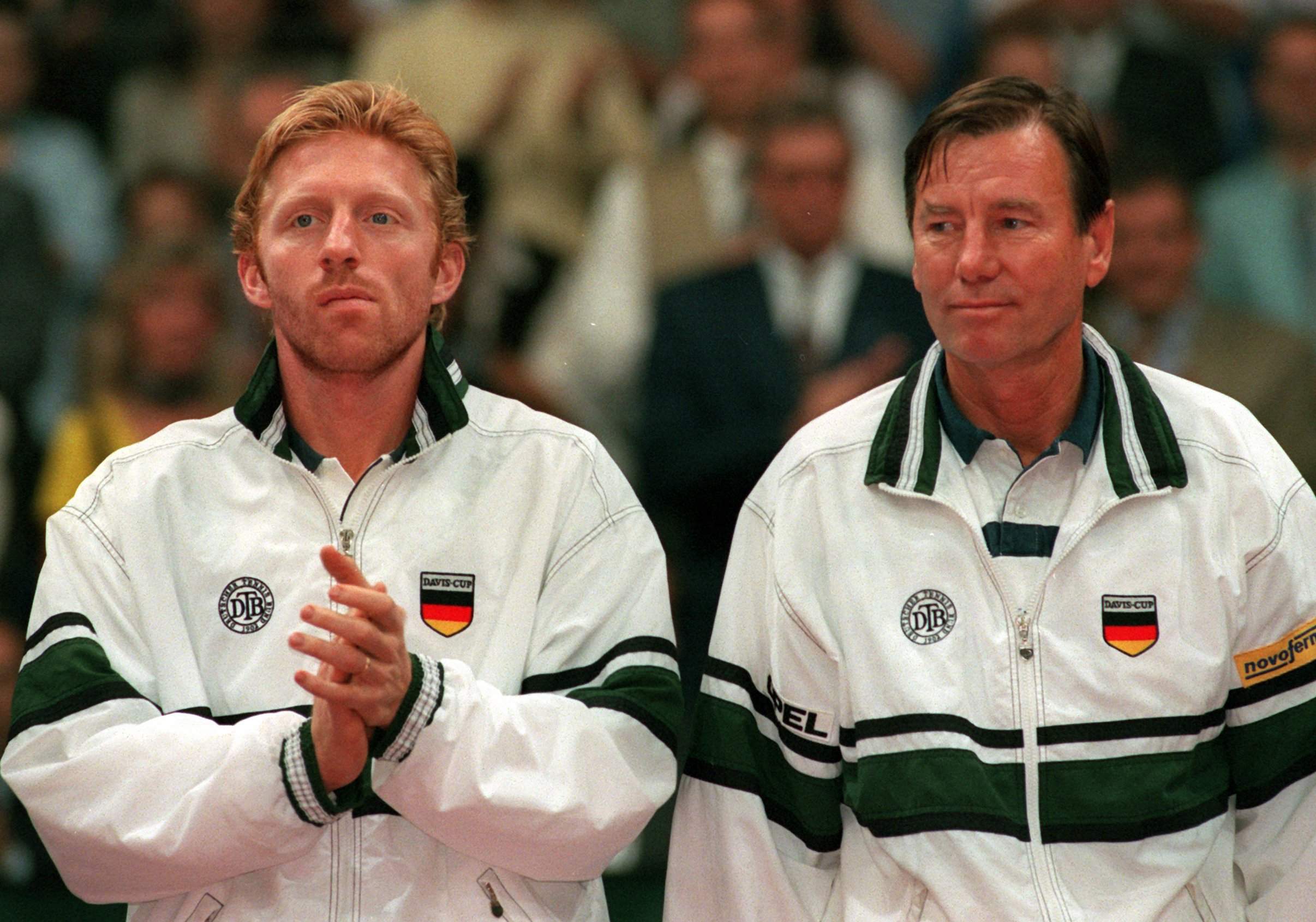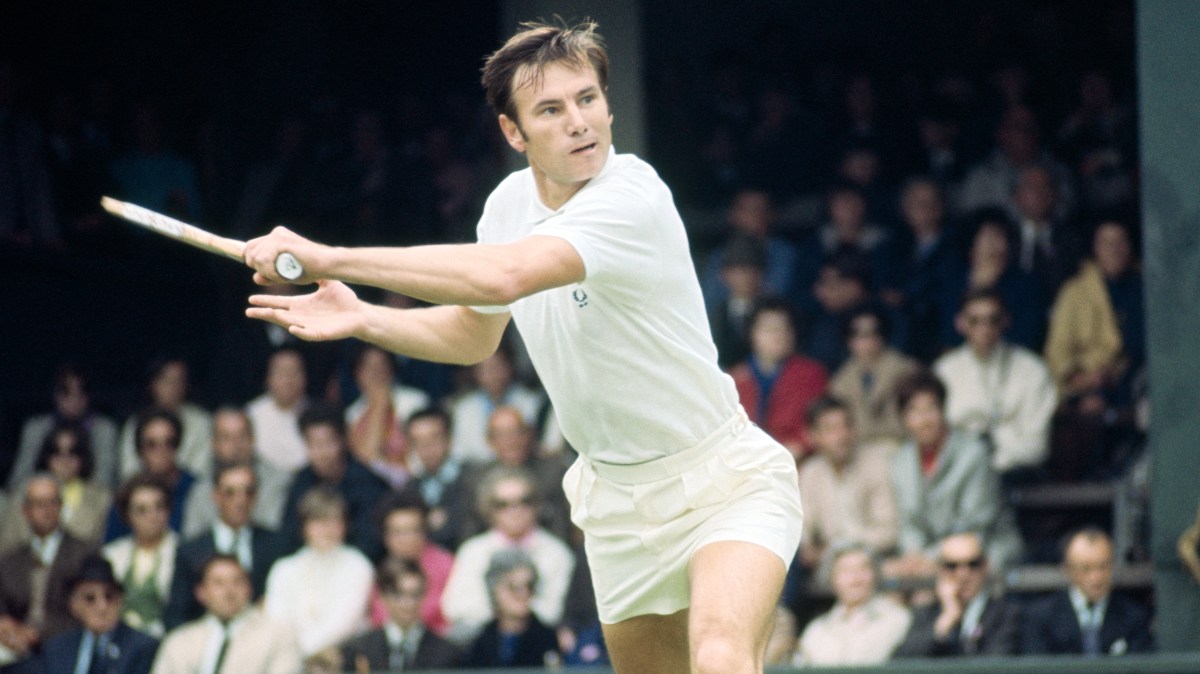The 1973 French Open finalist heard a knock at his hotel room door that signalled the arrival of a momentous telegram from the All England Club.
The missive from London to Paris informed Niki Pilic that he would be excluded from Wimbledon later that month because he was no longer in good standing with the tennis federation of his native Yugoslavia.
Pilic had skipped a Davis Cup tie against New Zealand in favour of a more lucrative doubles tournament in Canada. This prompted a backlash and the national association — which was run by his uncle — banned him and complained to the sport’s governing body, then known as the International Lawn Tennis Federation (ILTF).
It suspended him for a month. The time frame made him ineligible for Wimbledon, igniting a controversy when dozens of top players chose to boycott the tournament in solidarity. What was dubbed the Pilic affair was an early test of player power in a sport that had only opened grand slams to professionals five years prior.
Seeking a greater say in how the sport was run and a bigger slice of the profits, the newly formed male players’ union, the Association of Tennis Professionals (ATP), took a stand that pitted them against the ILTF, which had gambled that the players’ resolve would wither when faced with the prospect of missing such a prestigious event.
Though he later became a widely admired coach and a mentor to Novak Djokovic, Pilic the player was not an obvious focal point for a cause célèbre. A robust conservative and hard-boiled competitor who was rarely described as affable, he was not a natural trade unionist or among the circuit’s most successful or beloved players. “He thought anyone who even looked like a hippie should be shot, preferably through the heart by him,” wrote the journalist Frank Keating.
Nonetheless, after a failed appeal to the High Court in London and fruitless talks with Sir Eldon Griffiths, the sports minister, a boycott was announced after a late-night ATP board meeting only hours before the draw for the tournament, tipping the tennis world into a crisis. In total 81 men refused to compete, including most of the seeds, forcing organisers to make up the numbers with “lucky losers” from the qualifying tournament. Among those who did play were Ilie Nastase, Jimmy Connors, Bjorn Borg and, under patriotic pressure, the British number one, Roger Taylor, who lost in the semi-finals to the eventual champion, Jan Kodes of Czechoslovakia.

Pilic with Novak Djokovic in 2024
SRDJAN STEVANOVIC/GETTY IMAGES
The British press generally took the side of the establishment. The players were, one headline declared, “stupid” and “money-mad”. A Times opinion writer lamented “yet another example of player-power that has bedevilled one sport or another for many years now”.
Nikola Pilic was born in Split, Croatia, in 1939, to Krsto, a metalworker, and Danica Tomic-Feric, from a prominent local family. He took up tennis aged 13 and was immediately hooked, trading his bicycle to a friend for a racket then stealing small amounts of money unnoticed from his mother’s purse over six months so he could buy a better one. He began planning for a career in shipbuilding, later studying government administration as he rose through the amateur ranks while training at the Firule club in Split.
A tall, athletic and big-serving left-hander who was strongest on clay, Pilic became national champion in singles and doubles and was unofficially ranked in the world’s top ten in singles in 1967. That year he reached the Wimbledon semi-finals, losing in four sets to the eventual champion, John Newcombe.
As the Open Era dawned in 1968, Lamar Hunt, a sports entrepreneur and scion of Texan oil tycoons, recruited Pilic as one of the “Handsome Eight”. These were the first group of players to join the money-spinning World Championship Tennis circuit, a rival to the ILTF’s Grand Prix competition. Pilic boasted, according to the tennis writer Richard Evans, that “only two people drive Mercedes in Yugoslavia — [President] Tito and me”.
Pilic’s finest achievement in grand-slam singles was reaching the final at Roland-Garros in 1973, though he lost in straight sets to Nastase. Pilic fared better as a doubles player, winning the 1970 US Open with the Frenchman Pierre Barthès, and finishing as a Wimbledon runner-up in 1962 with the Zagreb-born Boro Jovanovic.
After retiring in 1978 Pilic ran a tennis academy in Munich and coached future stars including the Wimbledon winners Djokovic, Michael Stich and Goran Ivanisevic (another Firule product) and two grand-slam semi-finalists from Latvia, Ernests Gulbis and Anastasija Sevastova. Djokovic described Pilic as his “tennis father”. Pilic recalled to a reporter that when the 12-year-old Serbian arrived in Munich, “he had many flaws that slowly were eliminated”.
Pilic captained Germany to all three of its Davis Cup titles, in 1988, 1989 and 1993, with Boris Becker, who had initially chafed at the coach’s disciplinarian style, playing a key role for what was then West Germany in the first two finals against Sweden. Pilic then led Croatia to its maiden Davis Cup title in 2005, becoming the first man to captain two countries to victory. He helped win the cup again as a hands-on adviser to a Serbia team that secured its sole victory in 2010.

Pilic with Boris Becker during the Davis Cup in 1997: Pilic captained Germany to several Davis Cup titles
ACHIM SCHEIDEMANN/AVALON
At the Yugoslav embassy in London in the early Seventies he married Mija Adamovic, a Serbian actress whom he had met through a friend years earlier. She survives him along with a daughter, Danijela, and a son, Niko.
Pilic was ultimately best known for the tournament he sat out. A near-record attendance over that Wimbledon fortnight in 1973 suggested that the public was unfazed by the lack of star quality. But the players, increasingly well paid as the decade wore on, were arguably victorious in the long term. The prize money for the Wimbledon men’s singles champion doubled from 1973 to 1974, to £10,000.
“People could not believe that we did it. But we proved in that moment that we were a very strong group,” Pilic told The New York Times in 2023. “We lost that year, but the war was won.”
Niki Pilic, tennis player and coach, was born on August 27, 1939. He died of undisclosed causes on September 22, 2025, aged 86

